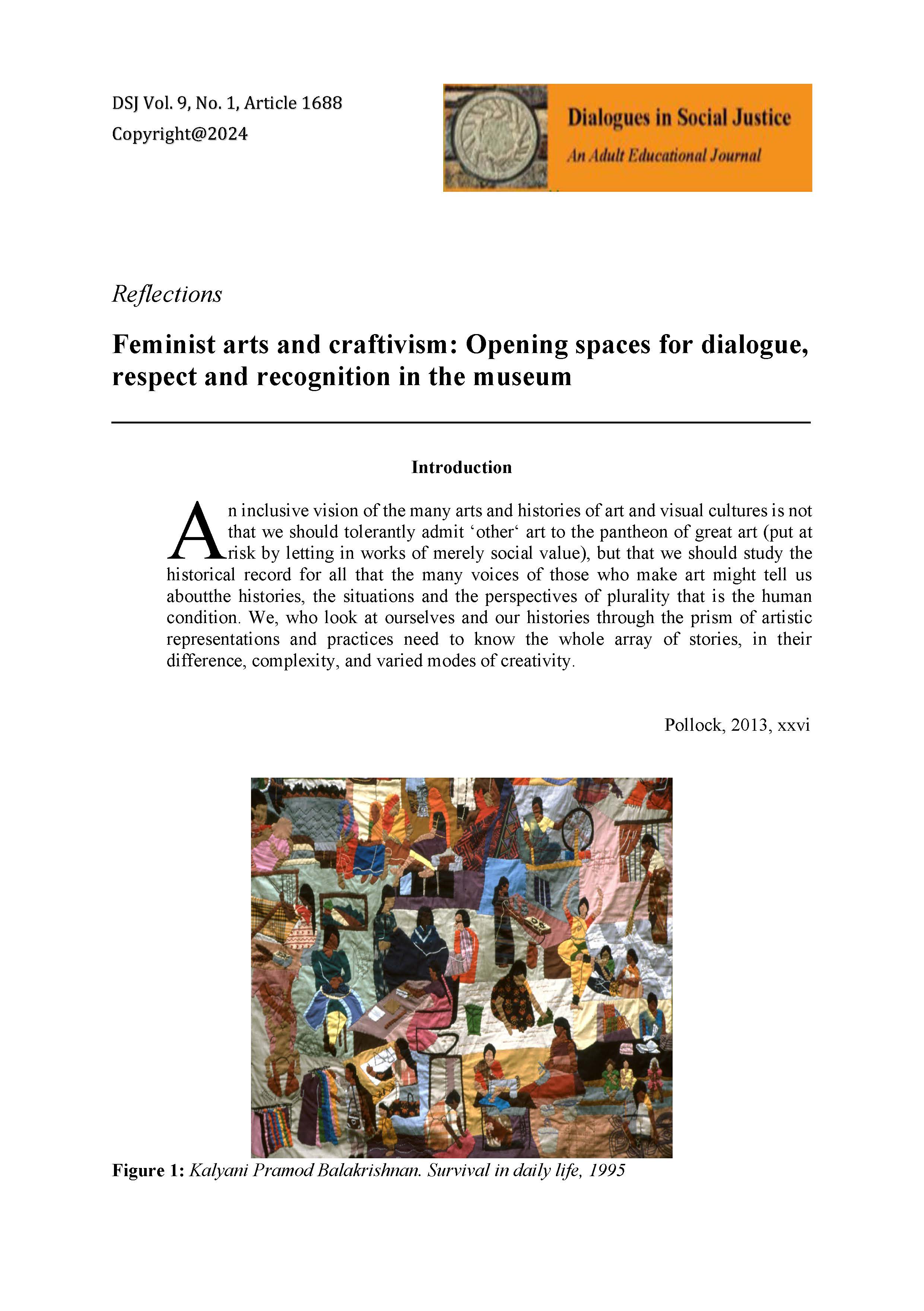Feminist arts and craftivism
Opening spaces for dialogue, respect and recognition in the museum
DOI:
https://doi.org/10.55370/dsj.v9i1.1688Abstract
Abstract
My article explores the potential of the feminist adult education practices in the Museum Frauenkultur Regional - International in Fürth, Germany to create spaces for women to discuss and raise questions about gender but also artistic inequality and difference. I show how we use specific exhibitions and feminist pedagogical approaches to challenge the ongoing Western gendered binary between art and ‘craft’. I also discuss how we curate and present side-by-side works of feminist resistance art and Indigenous women as a means to move away from normative hierarchies. I argue that our combined feminist curatorial and post-colonial pedagogical approaches not only contribute to new understandings and respect for Indigenous artists and women’s collectives of art of resistance, but to the empowerment of visitors from marginalized communities who witness a new vision of equality across our museum.
Keywords: feminist adult education, non-binary hierarchies, art and craft, Indigenous and resistant arts

Downloads
Published
Issue
Section
License
Authors who publish with this journal agree to the following terms:
a. Authors retain copyright and grant the journal right of first publication with the work simultaneously licensed under a Creative Commons Attribution License that allows others to share the work with an acknowledgement of the work's authorship and initial publication in this journal.
b. Authors are able to enter into separate, additional contractual arrangements for the non-exclusive distribution of the journal's published version of the work (e.g., post it to an institutional repository or publish it in a book), with an acknowledgement of its initial publication in this journal.
c. Authors are permitted and encouraged to post their work online (e.g., in institutional repositories or on their website) prior to and during the submission process, as it can lead to productive exchanges, as well as earlier and greater citation of published work (See The Effect of Open Access).

